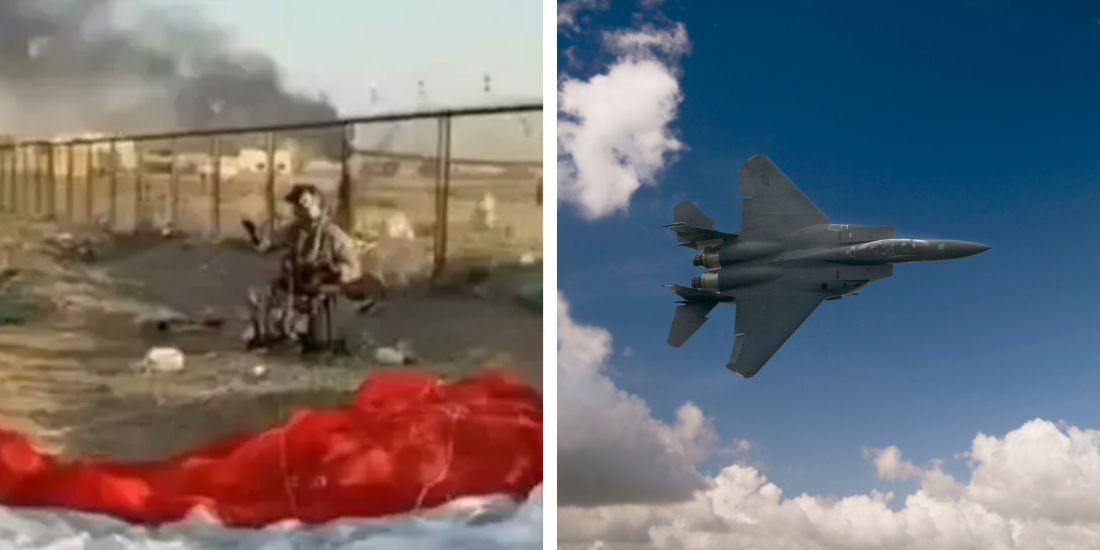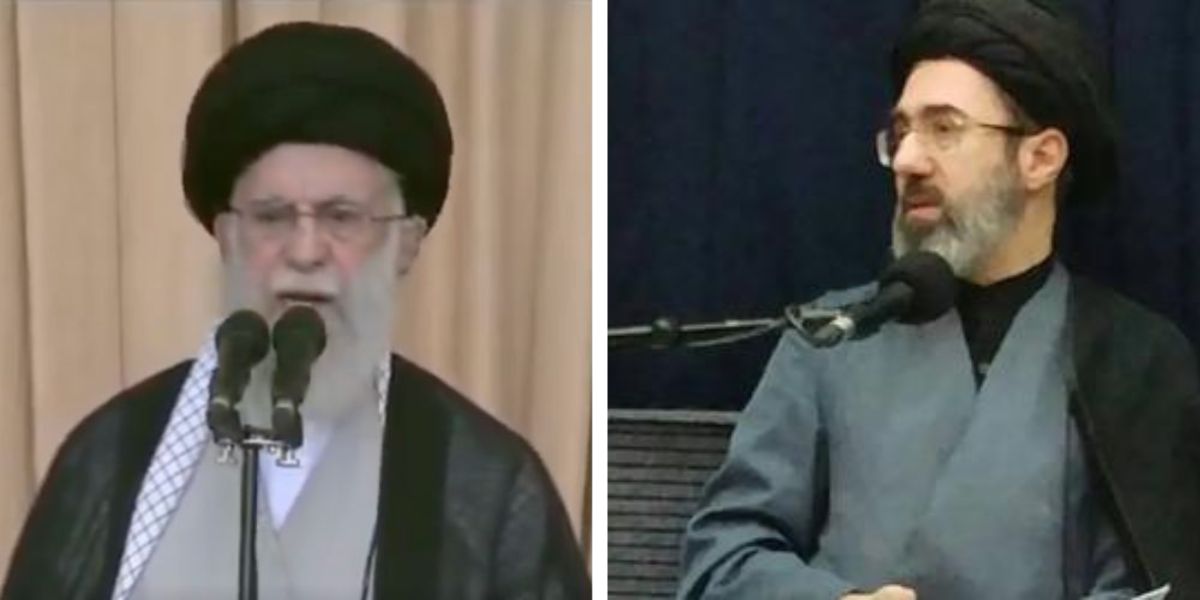Last Friday we heard White House plans to declassify documents showing that Samantha Power was on a “one-woman crusade” for the Palestinians and against Israel in 2016.
Power – Obama's Ambassador to the United Nations – targeted any phone call made about Israeli settlements, unmasked the caller, and passed the information to Deputy Attorney General Sally Yates, who opened a Logan Act investigation. She did this repeatedly to get the message across about Obama’s true policy:
...the Obama-era policy of neutrality towards the Israel-Palestine conflict was a lie.
The former U.S. ambassador moved at such a rapid pace that she ended up "averaging more than one request for every working day in 2016,"... And she continued to seek identifying information about Americans caught up in incidental surveillance right up to President Trump’s inauguration.
This is significant. It means the Obama-era policy of neutrality towards the Israel-Palestine conflict was a lie, and the Obama administration used executive power in a clandestine fashion.
The deeper one looks, the bigger a lie the whole thing becomes. Until the full truth emerges, that is: with the entire Middle East, the Obama administration was pushing a far different policy than the one they presented to the public. This has resulted in long-lasting damage both in the Middle East, and America's international standing.
[caption id="attachment_177427" align="alignnone" width="4096"] President Barack Obama talks with, from left: Samantha Power, former Senior Director for Multilateral Affairs and Human Rights; National Security Advisor Tom Donilon; and Susan Rice, U.S. Permanent Representative to the United Nations, in the Oval Office, June 5, 2013. (Official White House Photo by Pete Souza)[/caption]
President Barack Obama talks with, from left: Samantha Power, former Senior Director for Multilateral Affairs and Human Rights; National Security Advisor Tom Donilon; and Susan Rice, U.S. Permanent Representative to the United Nations, in the Oval Office, June 5, 2013. (Official White House Photo by Pete Souza)[/caption]
HOW WE GOT HERE
Obama cashed in on a public weariness with the Iraq War to sail to the presidency.
Our first major event was the Arab Spring–the Egyptian Revolution that started in Tahrir Square in January 2011 and led to the ouster of President Hosni Mubarak. Led by a seemingly secular, liberal youth, this movement used the Eastern European revolutions as a handbook. It was a time of immense false promise, where people hoped the Arab world would finally turn around and find liberation.
But the hope of Tahrir Square turned to fear as the Muslim Brotherhood took power in the first succeeding election. The century-old Islamist party had a decided organizational advantage over the more fresh-faced activists of Tahrir Square. The Brotherhood put forward Mohammed Morsi who quickly consolidated their power and passed Islamist reforms and support for terror outfit Hamas.
While people lamented a revolution that couldn’t advance further, they were also relieved that it didn’t get much worse.
With secular revolutionaries’ hopes dashed and rising concerns about the international chaos that could ensue from such radical policy changes, the military stepped in and replaced Morsi with General Sissi. This was probably the most popular military coup one could ever hear of.
Up to 33 million Egyptians flooded the streets supporting this so-called coup to kill any presumptions that it was some covert or sordid affair. While people lamented a revolution that couldn’t advance further, they were also relieved that it didn’t get much worse.
Around the same time New York Magazine ran its infamous article calling Obama America’s “ First Jewish President.” It argued, risibly, that given Israel’s wildly unpopular demands like defensible borders, they were extremely fortunate to have someone as friendly as Obama. The Obama administration marked the presidency’s first references to Israel’s “security needs.” But this would later prove to be only the official line.
Meanwhile, the administration pursued regime change in other countries like Libya and Syria. However, while Egypt had a relatively stable government and a homegrown revolution, Libya and Syria did not. With predictable results.
[caption id="attachment_177428" align="aligncenter" width="1024"] Tahrir Square (Flickr, CC)[/caption]
Tahrir Square (Flickr, CC)[/caption]
Pushing regime change with boots on the ground was bad, and pushing regime change without proved even more disastrous. Over 5 million people have been displaced from Syria since 2011 according to UNHCR. Libya has been reduced to medieval slave markets.
The scale of these humanitarian crises were unheard of in the Iraq War. But they were also completely ignored by the media.
This blackout laid the backdrop for the 2015 Iran Nuclear Deal, a deal which to this day is murky and unclear, as the Obama administration and its allies in media have sold to no end. All while Arab states and Israel warned it would embolden Iranian aggression and give nuclear capabilities to a hostile power and state sponsor of terror. Those fears were correct, as Iran-funded Houthi rebels in Yemen, Hezbollah in Lebanon, and Hamas in Gaza prove.
The split between Obama and Netanyahu over the Iran deal was so bad Obama even tried to help the Israeli opposition parties get elected.
This split was only the harbinger of a much deeper chasm below. Not only between the Obama administration and Israel, but between the Obama administration’s stated policy and its actual policy.
FACTS VS FICTION
Stated, Obama assured that the security of Gulf states was his one of his primary concerns. But his actual policy reflected a desire to buy Iranian friendliness. If we somehow showed we were nice enough, Iran would join our community of free nations.
There would be good news, but it would come in under the radar, unreported. While the Gaza war of 2014 seemed to be just another in an interminable conflict, something changed.
For the first time, Israel’s Arab neighbors sat this one out, and did not pressure Israel to immediately cease hostilities. The war dragged for about a month. And while the usual charges were laid against Israel, its neighbors didn’t see a need to become involved.
...the big issue here was how well Trump was received by the Gulf states.
This underscored deeper undercurrents of peace and cooperation between Israel and its Arab neighbors, which would culminate in Trump’s 2017 Middle East trip. This trip featured several firsts which marked a new normalization of relations between these countries. But the big issue here was how well Trump was received by the Gulf states.
Such enthusiasm for a man reviled by the American media as an incompetent boob. It only makes sense when you understand the destructiveness of Obama’s policy in the Middle East. We were told the Iran Nuclear Deal would preserve security in the region and lead to a denuclearized Iran. It did not.
Even Obama’s reference to ISIS as ISIL – “Iraq and Levant” instead of “Iraq and Syria” raised some eyebrows about the meaning of that semantic shift. Why say this new terrorist group was not contained by Iraq and Syria and was spreading into the Levant, which includes Lebanon, Jordan, and Israel?
THE TRUMP RESET
Meanwhile Trump’s new foreign policy announced that while the United States would not be afraid to use force if necessary, and stand up for its allies abroad, it would still have the local countries do the heavy lifting. The United States would only come to help when asked – it would no longer presume to act on behalf of others as it did in Iraq.
This was a marked shift from the Obama administration, which presumed that if people resorted to terrorism and fundamentalism, it’s because we weren’t nice enough to them. The shift away from this was most welcome in a region that was tired of this reputation.
[caption id="attachment_177429" align="aligncenter" width="1100"] US President Donald J Trump visit to Israel. Meeting of Prime Minister Benjamin Netanyahu with President Trump in Jerusalem - The Israel Museum. Photo: Amos Ben Gershom GPO[/caption]
US President Donald J Trump visit to Israel. Meeting of Prime Minister Benjamin Netanyahu with President Trump in Jerusalem - The Israel Museum. Photo: Amos Ben Gershom GPO[/caption]
Nowhere was that more obvious than in the moving of the American embassy in Israel to Jerusalem. The significance was the reasoning – an honesty about the reality of the Middle East. And Trump was proven correct. While the media bellowed and bloviated about the mass unrest and instability it would cause, nothing much happened outside the usual echo chambers and political outlets.
It is against this backdrop that we can better understand Samantha Power’s clandestine use of state power to twist the arm of a U.S. ally. It reflects Obama’s rejection of American exceptionalism, and his desire to do so in a clandestine manner, violating official White House policy. It also means a rejection of the U.S. as moral beacon of the world. It means seeing the world not as one of competing ideals and ideologies, but where we don't separate good from evil.
This moral outlook means abandoning one’s allies and making overtures to one’s enemies. Since we’re all the same, it doesn’t matter who is armed, who is dangerous.
It’s a dangerous outlook that leaves our friends vulnerable to chaos and anarchy. It should be no surprise when they yearn for a Trump to step in and help them clean up the resulting mess.
[maxbutton id="2" ]
Because the issue for us now is not to counteract Obama’s appeasement strategy with isolationism. We can no longer retreat from such an interconnected world. Rather, we should follow Trump’s footsteps here, and see ourselves as a moral beacon, not to butt our way in, but to help and guide when asked.
A beacon of freedom “immovable as the northern star, whose stable and stationary quality has no equal in the sky.” (Julius Ceasar)
Ron Bassilian was the GOP congressional candidate in California's 37th district in 2018.





